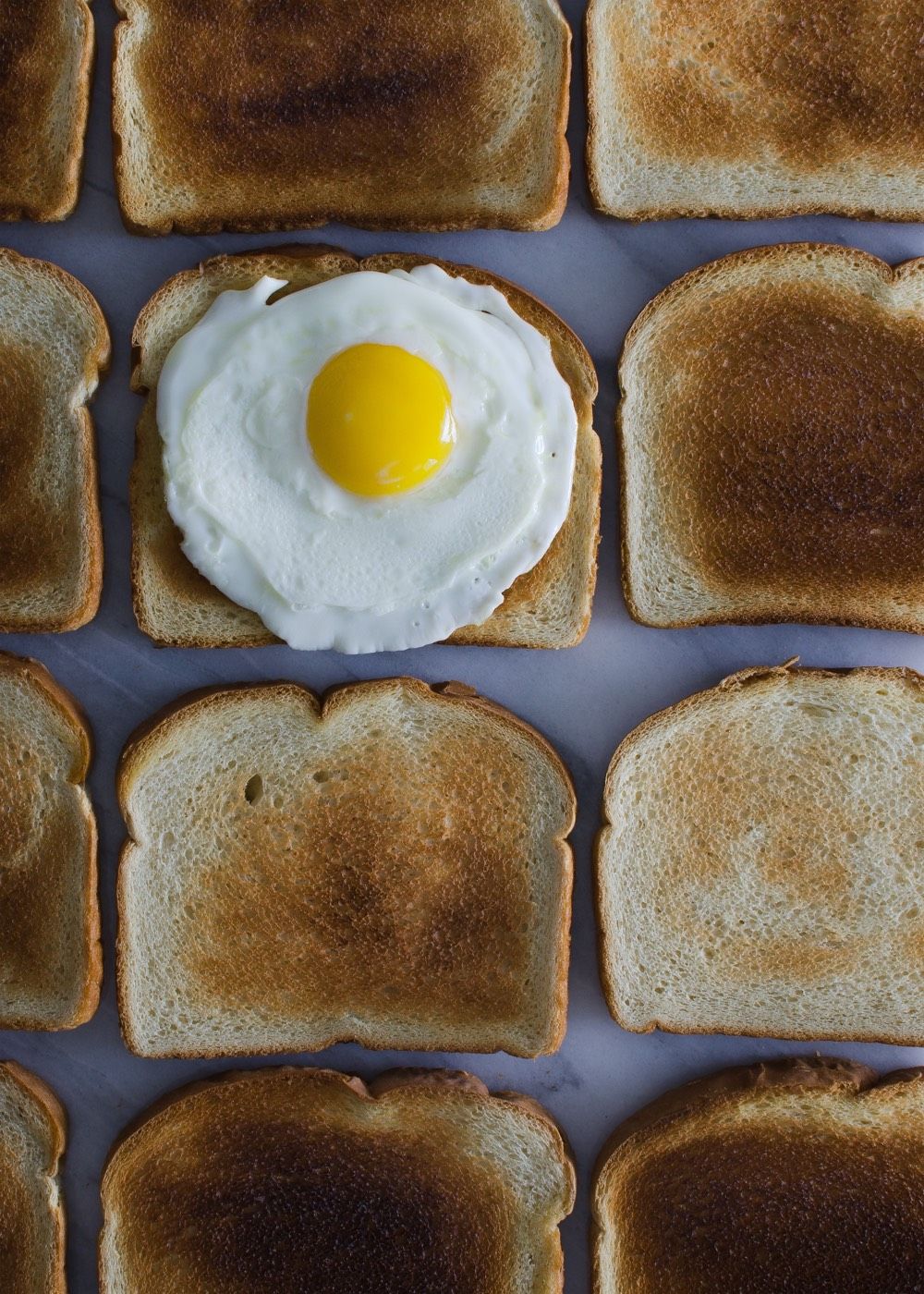Free-range eggs: Why they matter
In life we are bombarded with choices. Some are big, life-altering, choices (like, should I marry this person, or should I quit my job to become a day-trader on the crypto-market?). Others...not so much (should I buy the light yougurt or not?).
Sometimes we don't put much thought into the hundreds of smaller choices we make daily. We're busy, man, so just make your mind up already and move on! One such choice presents itself to us as we peruse the chilly, well-lit refrigerated section at the local grocery store: that of the humble egg.
Free range, free run, organic, omega-3, white, brown, large, medium…well, let’s just say, the possibilities can leave you feeling scrambled. A common choice made by many is to reach for the carton with the words “Free-Range” stamped across the top, but, what exactly does it mean to be free-range?

What’s the dif?
According to the the Egg Farmers of Alberta, there are two factors to take into consideration when an egg gets labeled with its official classification - the type of feed a hen eats and the type of housing provided to that hen.
There are ten categories under which an egg can fall - this is where the confusion can settle in. For example, there are free-range eggs and free-run eggs, but they're different. For starters, “free-range” refers to eggs that come from hens that are able to walk around freely in a barn or aviary and also have access to outdoor runs. “Free-run” eggs, on the other hand, come from hens that are able to walk around freely in an enclosed barn but do not require access to outside.
Hard boiled in controversy
Of course, free-range eggs don’t come without controversy. Besides the age-old debate on eggs—are they good for you or are they not—there is this other layer to the controvery conversation: since the definition of what it means to be a free range-egg is somewhat vague (i.e. the part that says:“provides access to the outdoors”) with no mention of length of time, who’s to know how long a “free-range” hen is actually allowed to be outside (a minute? an hour? all day?).
The living conditions of chickens have many animal activists, including celebrities like Ryan Gosling, speaking out against the sad realities facing egg-laying chickens on big commercial farms. These birds are often squished into a cage, along with seven or eight others, where they live out their short lives eating high-protein diets so they can mass produce eggs. This has many people demanding for a more humane treatment of egg-laying hens and accountability by retailers and the big consumers of egg products (think fast-food restaurants).
So, as consumers, the choices we make in the egg-aisle can make a difference on, not only the type of egg we decide to bring home and eat, but on what type of farming practice we support. Those little choices can make a big impact.
50 shades of yellow
A common belief is that the colour of an egg’s yolk reflects it’s nutritional value. Not true, according to nutritional scientists. The colour of a yolk, which can vary from a pale yellow to a deep orange, is dependent on something called carotenoids, which are natural pigments found in some plants. The yolks of free-range eggs tend to be darker in colour because hens who are free to roam outside have more opportunities to eat pigmented food.
Fast Fact: Some may think that “free-range” is synonymous with organic, not so. To be categorized as organic, hens must be raised in a free-range housing system AND eat a diet that has been certified organic (meaning nothing grown with the use of pesticides, herbicides or commercial fertilizer). Organic eggs must also have a certified organic symbol on their carton.
I wrote this article, it originally appeared in print in t8n magazine (August 2015).

Thank you for explaining the DIFFERENCE between Free-Range eggs & free-run eggs. Not aware of it, until you explained the details on it.
Enjoyed yr article .
I myself like brown eggs w/ deep orange yolks.
Yeah, those are my favs too! The experts say there is no difference in nutritional value regardless of what kind of egg it is, but I think taste-wise, the eggs you mention are better tasting and just...heartier, or something.
Thanks for reading!! And for the nice words :)
Free range eggs can actually taste better and be more colourful than caged or factory. People wouldn't let their pets live in these factory sheds, so why do we let chickens?
You're totally right. The hen's diet will influence the colour of the yolk, so an outdoor hen's will be darker (because they can get at bugs and different plants, n' such).
very true...at my friend's farm they just feed their chicken with worms from their everyday food wastes and leaves [horseradish]
I always have trouble remembering which is whixh at the supermarket and this definitely helped!
Haha, just remember: RUN AWAY from free run, and make your way to free range!! ;)
I grew up helping my grandparents on their farm. Feeding, picking eggs, washing and delivering eggs 'into town' was the main chore. Your article brought back a lot of pleasant memories, thank you.
Farm fresh is the best!! As a kid, picking eggs is the funniest thing ever, isn't it?!